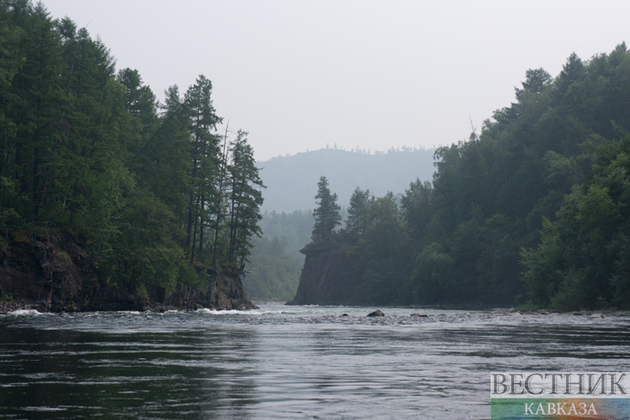The first expedition of Russian scientists to Azerbaijan to study the Samur River, along part of the riverbed of the border between the two countries, will take place in December, Azerbaijani Natural Resources Ministry announced.
The project is essential for preserving water resources and fighting climate change, deputy head of the environmental policy department of the Azerbaijani Natural Resources Ministry Rafig Verdiyev said.
"The protection of water resources of this river is an important factor for us. An expedition of Russian scientists to Azerbaijan is expected.
"There will be joint research in terms of the biodiversity of the basin, water resources, and changes in underground surface water. Based on this, we will form project proposals in more detail," Rafig Verdiyev said.
The project is important in the field of adaptation to climate change, as well as in order to reduce greenhouse gas emissions into the atmosphere," the interlocutor of the Agency said, noting that the expedition is planned to be held in December 2023.
According to him, no such detailed expeditions have been conducted by scientists in the Samur River basin before. Verdiyev said that joint research will take place not only in Azerbaijan but also in Dagestan. He recalled that climate change in the last 20-30 years has led to significant deterioration of water supply conditions and agricultural development, lowering the Caspian Sea level, droughts, and desertification, which negatively affects the economy of countries and people's lives.
He stressed that Moscow and Baku are planning a number of projects to combat climate change: their main goals are to preserve aquatic ecosystems as well as the basin's biodiversity by planting forest plantations, and vegetation, strengthening the coastal protection zone, and fighting erosion, and desertification. All these activities will lead to the basin's resilience to climate change and water conservation, the deputy head of the environmental policy department believes.
In addition, Vardiyev noted that the state of the river as a whole affects the quality of water in the Caspian Sea. He stressed the experience gained during the expedition of restoration of the river system in a natural way in the future can be used by Kazakhstan, Iran and Turkmenistan as well.






